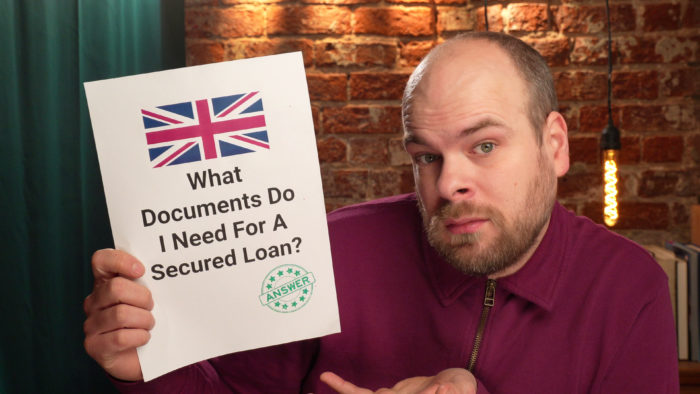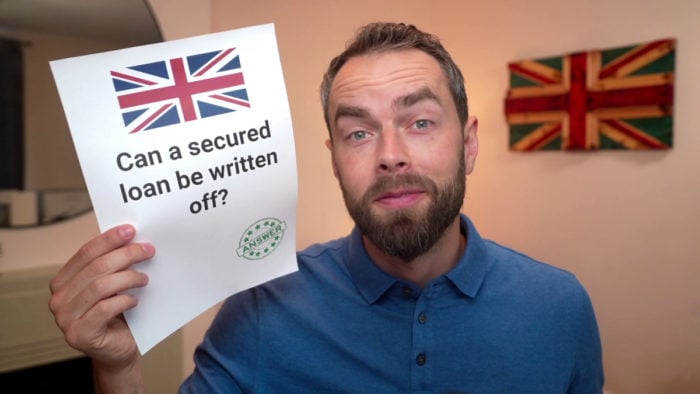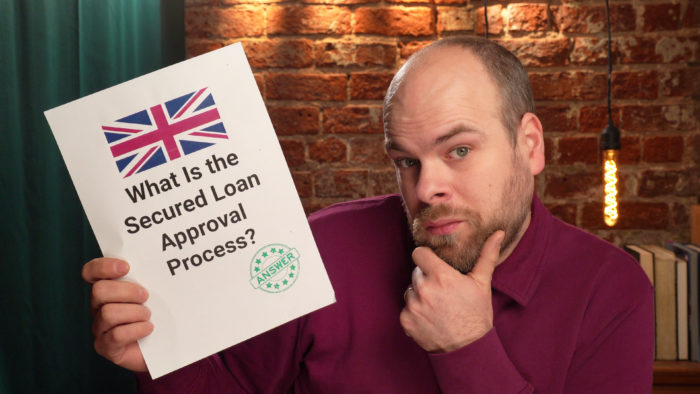What Documents Do I Need For A Secured Loan?
Representative example: If you borrow £34,000 over 15 years at a rate of 8.26% variable, you will pay 180 instalments of £370.70 per month and a total amount payable of £66,726.00. This includes the net loan, interest of £28,531.00, a broker fee of £3,400 and a lender fee of £795. The overall cost for comparison is 10.8% APRC variable. Typical 10.8% APRC variable

Representative example: If you borrow £34,000 over 15 years at a rate of 8.26% variable, you will pay 180 instalments of £370.70 per month and a total amount payable of £66,726.00. This includes the net loan, interest of £28,531.00, a broker fee of £3,400 and a lender fee of £795. The overall cost for comparison is 10.8% APRC variable. Typical 10.8% APRC variable
Getting a secured loan can be a big step. You may have a lot of questions, like ‘what documents do I need for a secured loan?’. We’re here to help. Each month, over 6,900 people come to us for advice on secured loans. We understand that you may feel worried about the process and the possible risks. But don’t worry, we’ve got you covered.
In this easy-to-understand guide, we’ll explain:
- The difference between secured and unsecured loans.
- The real cost of a bad secured loan.
- The pros and cons of a secured loan.
- How quickly you can get a secured loan.
- What documents you need for a secured loan, including identity proof, address proof, income proof, and documents for your existing debts and collateral.
We know that getting a loan can be tough sometimes. You’re not alone in this. We’re here to give you clear and simple advice. Let’s learn more about secured loans together.
How do I get a secured loan?
You get a secured loan by working out how much you need to borrow and searching for secured loans that can provide this amount of credit. Once you have found the bank or lender with the secured loan you wish to apply for, you usually make an application online.
The application will consist of basic personal information and require you to enter information about your income, existing debts and the value of your property.
The lender will assess your application and complete checks to make a decision. They might need to value your property rather than rely on your information.
Before applying, it’s worth checking your credit score for mistakes. Sometimes, companies will enter incorrect information on your credit file, which decreases your credit score. You can check for these mistakes and get them corrected before applying.
What documents do I need for a secured loan?
When applying for a secured loan, you will need to hand over or upload different documents to prove various aspects of your application. Documents can often be verified digitally nowadays, which, in my experience, can help speed up the process considerably.
The most common documents you need for a secured loan application are:
#1: Documents to prove your identity
Proving your identity is essential to get a secured loan. The lender will need photo identification to prove your identity, such as an in-date passport or a driving license. If you use a driving license, it may need to have your current address on it. Photo identification might need to be backed up with other documents to prove your identity.
#2: Documents to prove your address
You’ll also need to prove your UK address. The address should match the address of the property you’re using as security in the agreement if you have told the lender that this is your residential home. If you have told the lender the property is an investment property only, your address won’t need to match the property address.
The documents you typically need to supply to prove your address are letters addressed to you at the address within the last 90 days. If there are two people applying for the loan together, the letters should be addressed to both people or separate letters addressed to each person at the address can be used. You may need two or three letters within the last 90 days to sufficiently prove your address.
#3: Documents to prove your employment status/income
Each secured loan applicant will need to prove how much income they receive from all regular sources, and it should match the amount stated on the application. The easiest way to prove a level of income is to supply three previous payslips from your current employer. Each applicant will need to do this to prove household income.
If you have more than employment income, you may need to supply the past three months of bank statements, a letter from your accountant or your latest HMRC tax return.
#4: Documents to prove your existing debts
If you have existing debts – including a mortgage – you’ll need to prove how much you owe to which creditors as well. This is so the lender can assess your current level of income against existing debts, and so they can work out if the new secured loan will be affordable to you.
You can always ask for a full breakdown of existing debts from your lenders. They should provide you with a clear statement showing how much you owe and what you’re required to pay for the remainder of the repayment period.
These documents can take the longest to get hold of, so if you’re preparing for a secured loan application, you may want to prioritise getting these first.
Lender |
APRC |
Monthly payment |
Total amount repayable |
|---|---|---|---|
| United Trust Bank Ltd | 5.99% |
£218.73 |
£26,247.92 |
| Pepper Money | 6.86% |
£220.24 |
£26,429.17 |
| Together | 6.95% |
£220.40 |
£26,447.92 |
| Selina | 7.5% |
£221.35 |
£26,562.50 |
| Equifinance | 7.7% |
£221.70 |
£26,604.17 |
| Spring | 10.5% |
£226.56 |
£27,187.50 |
| Loan Logics | 11.2% |
£227.78 |
£27,333.33 |
| Evolution | 11.28% |
£227.92 |
£27,350.00 |
Representative example: If you borrow £34,000 over 15 years at a rate of 8.26% variable, you will pay 180 instalments of £370.70 per month and a total amount payable of £66,726.00. This includes the net loan, interest of £28,531.00, a broker fee of £3,400 and a lender fee of £795. The overall cost for comparison is 10.8% APRC variable. Typical 10.8% APRC variable.
Search powered by our partners at LoansWarehouse.
What documents are needed for collateral?
The documents you need regarding the asset listed as collateral are:
- Documents that prove you own the asset
- Documents that prove the value of the asset
As the vast majority of secured loans use property (equity) as collateral, this means you’ll need to supply proof that you own the property, which can usually be done with a copy of the deeds.
You might be required to supply proof of the value of the asset. However, this can usually be completed on the lender’s side using sophisticated technology.
In some instances, the lender may send out a surveyor to value the home. The lender may cover this cost, or you may be asked to contribute towards it.
Do you have to pay off your mortgage to get a secured loan?
No, a secured loan can be secured with home equity rather than the property itself. This means you don’t have to own 100% of your home to get a secured loan against it.
Home equity is calculated by taking away all liens of credit secured against the property from its current market value. For most people, this simply means taking away the outstanding mortgage balance from the property value.
Secured loans for all purposes
- Stuck paying high interest on credit card debts & loans?
- Looking to fund a home improvement project?
- Dreaming of finally taking the once-in-a-lifetime trip?

Polly
“This was by far possibly one of the nicest experiences I’ve had getting a secured loan.”
Reviews shown are for Loans Warehouse. Search powered by Loans Warehouse.
How quickly can I get a secured loan?
It can take a couple of weeks to get approved for a secured loan, with some approval processes taking over one month.
The reason it takes much longer than an unsecured loan is that more document checks are required, and the secured loan provider might have to complete an appraisal on your property.
There is one type of secured loan that usually comes with an instant decision and instant cash – pawnbroker secured loans. This type of secured loan works by taking an asset to a pawnbroker shop and asking for a loan. The pawnbroker can verify documents in person and value the asset, which is usually a watch, ornament, painting, or jewellery.
The pawnbroker store will then give the borrower a cash loan and get them to sign a credit agreement committing them to repayments. The store keeps hold of the asset while repayments are being made, and if they are missed, the store has the right to sell the asset to recover the money owed.
» TAKE ACTION NOW: Compare deals from the UK’s leading lenders
Is a secured loan easier to get?
A secured loan is generally considered easier to get approved compared with an unsecured loan.
The lender faces less risk when offering secured loans, and therefore, they are typically easier to get approved. If you don’t pay the secured loan back, the lender knows it can simply initiate foreclosure.
But, a secured loan can take longer to get approved due to the extra checks and processes involved.


